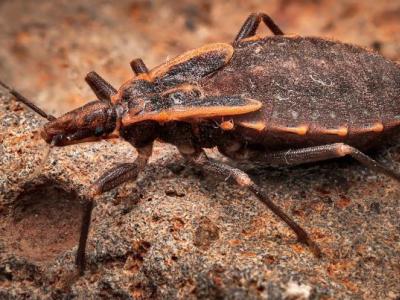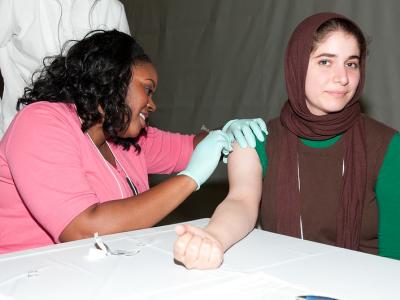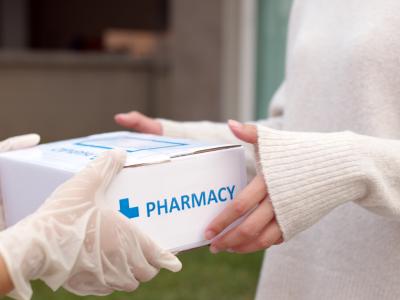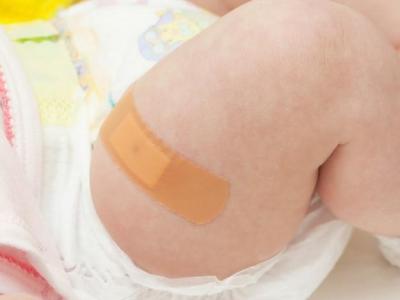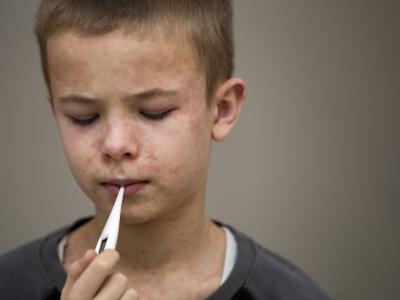COVID-19 patients may owe thousands for after-hospital care
Even when insurance companies waived charges for COVID-19 hospitalizations, 10% of patients still had out-of-pocket costs of $2,000 or more for care that took place in the 6 months after they were released, finds a new study in the American Journal of Managed Care.
The same team published a study Feb 14 in JAMA Network Open showing that COVID-19 hospitalizations alone could cost patients, on average, $1,600 to $4,000.
University of Michigan at Ann Arbor researchers analyzed medical and pharmacy claims in Optum's Clinformatics Data Mart from privately insured and Medicare Advantage patients hospitalized with COVID-19 from March to June 2020. They compared the findings with those of pneumonia patients after hospitalization in the same period.
Among 7,932 COVID-19 patients, 26.0% were privately insured. For all patients, estimated median out-of-pocket costs after hospital release was $287 for privately insured patients and $271 for Medicare patients. Costs exceeded $2,000 for 10.9% and 9.3% of these patients, respectively.
Median spending for patients hospitalized with pneumonia was $276 for privately insured patients and $570 for Medicare patients. Out-of-pocket spending was more than $2,000 for 12.1% and 17.2%, respectively.
The study authors noted that many COVID-19 survivors need extensive care after hospitalization, and now that most insurers have stopped issuing waivers, survivors could face substantial costs for both hospitalization and aftercare.
The researchers said that COVID-19 patients hospitalized in 2021 and after likely face even higher costs, because the data are from 2020, before insurers stopped issuing waivers. They called for insurers to reinstate the waivers to reduce patients' financial burden and lower the risk that ill people will avoid seeking care owing to cost concerns.
In a University of Michigan press release, lead author Kao-Ping Chua, MD, PhD, noted that the costs of extended care is on top of large bills for hospitalization. "The collective costs of hospitalization and care after discharge could result in financial toxicity for thousands of Americans," he said.
Mar 16 Am J Manag Care study
Mar 17 University of Michigan press release
Study highlights durability of antibodies in kids after SARS-CoV-2 infection
The vast majority of children previously infected with SARS-CoV-2 developed natural circulating antibodies that lasted for at least 7 months, but they declined after that, according to a study today in Pediatrics involving 218 Texas children.
Researchers from UTHealth Houston examined data from children across Texas aged 5 to 19 years who were enrolled in the Texas CARES survey, which began in October 2020 with the goal of assessing COVID-19 antibody status over time. They assessed the duration of the nucleocapsid antibody response— a measure of past infection rather than vaccination, which elicits antibodies to the virus's spike protein.
Volunteers provided the researchers with three separate blood draws before vaccine rollout for this group and before Delta and Omicron were predominant.
The investigators found that 96% of children infected with SARS-CoV-2 continued to have antibodies up to 7 months later. But that number dropped to 42% at their final assessment.
Lead author Sarah Messiah, PhD, MPH, said in a UTHealth news release, "The information we collected from children infected with COVID-19 didn't differ at all by whether a child was asymptomatic, severity of symptoms, when they had the virus, were at a healthy weight or had obesity, or by gender. It was the same for everyone."
She added, "While our study is encouraging in that some amount natural antibodies last at least six months in children, we still don't know the absolute protection threshold. We have a great tool available to give children additional protection by getting their vaccine, so if your child is eligible, take advantage of it."
In an accompanying commentary, pediatricians Andrea T. Cruz, MD, MPH, of Baylor College of Medicine, and Mark R. Denison, MD, of Vanderbilt University Medical Center, said the study "provides some reassuring data regarding the durability of the response." They add, "However, a qualitative antibody response should not provide false reassurance."
Mar 18 Pediatrics study and commentary
Mar 18 UTHealth Houston news release
